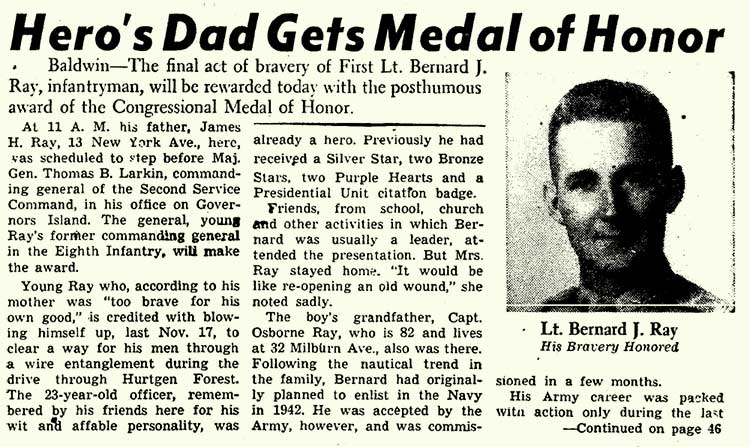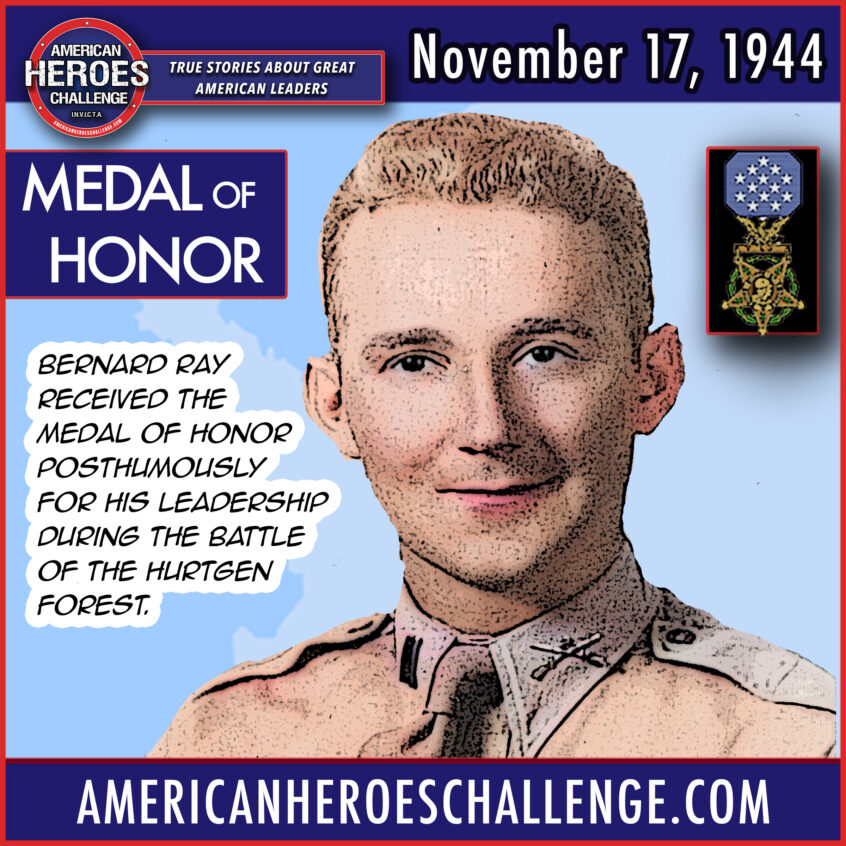You have to stop and think about the Americans fighting in the Hurtgen Forest today, one of the most miserable and horrific combat experiences of World War II. I am remembering Bernard Ray, a 23 year old lieutenant with the 4th Infantry Division who earned the Medal of Honor posthumously when he sacrificed himself to destroy a wire obstacle belt that was blocking his company’s advance.

Read his Medal of Honor Citation:
He was platoon leader with Company F, 8th Infantry, on November 17, 1944, during the drive through the Hurtgen Forest near Schevenhutte, Germany. The American forces attacked in wet, bitterly cold weather over rough, wooded terrain, meeting brutal resistance from positions spaced throughout the forest behind minefields and wire obstacles. Small arms, machinegun, mortar, and artillery fire caused heavy casualties in the ranks when Company F was halted by a concertina-type wire barrier. Under heavy fire, 1st Lt. Ray reorganized his men and prepared to blow a path through the entanglement, a task which appeared impossible of accomplishment and from which others tried to dissuade him. With implacable determination to clear the way, he placed explosive caps in his pockets, obtained several bangalore torpedoes, and then wrapped a length of highly explosive primer cord about his body. He dashed forward under direct fire, reached the barbed wire and prepared his demolition charge as mortar shells, which were being aimed at him alone, came steadily nearer his completely exposed position. He had placed a torpedo under the wire and was connecting it to a charge he carried when he was severely wounded by a bursting mortar shell. Apparently realizing that he would fail in his self-imposed mission unless he completed it in a few moments he made a supremely gallant decision. With the primer cord still wound about his body and the explosive caps in his pocket, he completed a hasty wiring system and unhesitatingly thrust down on the handle of the charger, destroying himself with the wire barricade in the resulting blast. By the deliberate sacrifice of his life, 1st Lt. Ray enabled his company to continue its attack, resumption of which was of positive significance in gaining the approaches to the Cologne Plain.
Ray earned a Silver Star, two Bronze Stars and a Purple Heart before his actions that day.
33,000 Americans died during the battle, which lasted between September 19 and December 16, 1944. It was the longest single battle that the United States Army ever fought. Honor and remember these great Americans!


